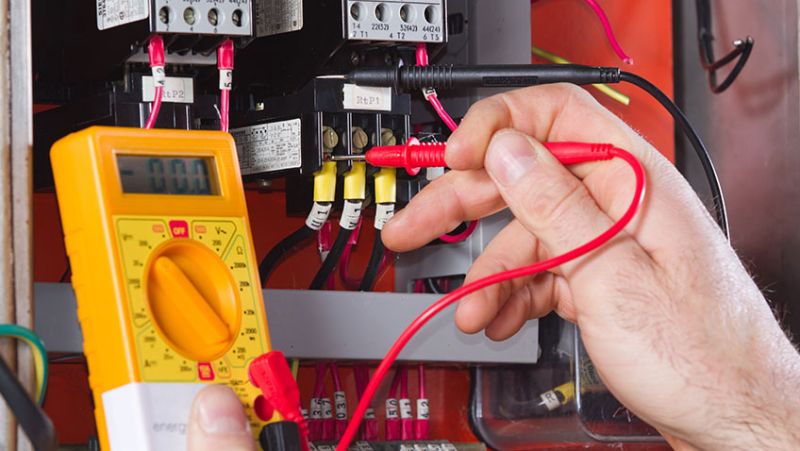
If you’re considering a career as an electrician or thinking about hiring one for a domestic or commercial project, one of the first questions that likely comes to mind is: how much do electricians make in the UK? Whether you're a DIY enthusiast needing occasional help, a young homeowner managing renovation costs, an architect planning smart electrical layouts, or a seasoned tradesperson thinking of expanding your skillset, understanding electrician pay is essential.
The salary and rates of electricians in the UK can vary widely depending on several key factors. These include the region they operate in, their level of qualification and experience, and if they are self-employed or working for a firm. Let’s break down what you need to know about electrician earnings in the UK and what it could mean for your project or career aspirations.
Average Electrician Salary in the UK
As of 2024, the average salary for a fully qualified electrician in the UK is between £32,000 and £42,000 per year. This range represents employed, full-time electricians working across domestic, commercial, and industrial sectors.
For those just starting their apprenticeship, earnings are significantly lower, with most apprentices earning around £15,000 to £20,000 annually. However, once qualified and with a few years of experience under their belt, earnings tend to rise quickly.
Experienced electricians specializing in certain fields such as smart home automation, EV charger installation, or industrial maintenance can command salaries closer to the £50,000+ mark.
Here’s a breakdown of estimated annual salaries at different stages of an electrician’s career:
| Experience Level | Average Annual Salary (UK) |
|---|---|
| Apprentice Electrician | £15,000 – £20,000 |
| Newly Qualified Electrician (0-2 years) | £25,000 – £30,000 |
| Experienced Electrician (3-7 years) | £32,000 – £42,000 |
| Senior/Commercial/Industrial Specialist | £45,000 – £55,000+ |
| Self-Employed / Contractor | Varies widely (£35,000 – £75,000+) |
Self-Employed vs. Employed Electricians
A major influence on how much an electrician can earn is whether they are employed or run their own business. Employed electricians usually have a stable salary, paid holidays, and possibly pension contributions. However, their earning potential is generally capped by the pay structure of their employer.
On the other hand, self-employed electricians or contractors enjoy considerable freedom. They set their own rates, choose their clients, and potentially earn significantly more. In busy urban areas like London, experienced electricians can charge as much as £60–£100 per hour.
However, self-employed work does come with responsibilities such as business administration, marketing, tool and van expenses, and managing tax and insurance. Those able to manage the business side effectively often report annual earnings between £50,000 to £75,000, though it can go higher based on workload and specialism.
If you're a tradesperson or designer collaborating with independent electricians, be prepared for price flexibility based on skillset and availability — and know that top-tier professionals are worth the investment.
Hourly and Daily Rates
Many electricians, especially self-employed ones, charge by the hour or the day. Understanding these rates is important whether you're budgeting a renovation or integrating electrical services into your home or building project.
Across the UK, typical hourly rates for electricians range from £35 to £60 per hour depending on location and complexity of work. For full-day rates, the range usually sits between £250 and £400 per day.
In London and the South East, rates are typically on the higher end due to demand and cost of living. For urgent or emergency call-outs, rates can be significantly higher — think £80 to £150 per hour, particularly outside regular working hours.
Here are a few common jobs and average prices you might expect:
| Job Type | Average Cost |
|---|---|
| Replace light fitting | £60 – £100 |
| New plug socket installation | £80 – £120 |
| Fuse box replacement | £400 – £650 |
| Full house rewiring | £3,000 – £6,000 |
| EV charger installation | £850 – £1,200 |
Regional Variations in Pay
Where an electrician works in the UK can have a big impact on their earning potential. Urban areas with higher living costs and demand for skilled trades tend to offer higher rates of pay. London, Surrey, and parts of the South East are known for offering the highest wages for electricians.
In contrast, more rural areas or regions with lower overall construction demand may see lower average salaries and rates. Still, skilled electricians are in demand throughout the UK due to housing growth, energy transitions (like solar power and EVs), and aging electrical infrastructure.
For those living in Scotland, Wales, or Northern Ireland, rates are generally lower than the South of England, but local demand, high-quality workmanship, and niche services can still command strong earnings.
How to Increase Your Earnings as an Electrician
Whether you're already working as an electrician or still training, there are multiple ways to grow your income:
- Get Qualified: Completing Level 3 NVQ qualifications, 18th Edition Wiring Regulations, and an ECS card can significantly boost your credibility and pay rate.
- Specialise: Learn a lucrative specialism such as smart home systems, EV charger installation, security systems, or solar panel wiring.
- Build Your Reputation: Excellent work, repeat business, and word-of-mouth recommendations are powerful drivers of growth. Online reviews and a professional website also help.
- Consider Self-Employment: Running your own operation can be more demanding, but the financial rewards — often £60,000+ per year — make it worth considering.
- Stay Up-To-Date: With evolving technology and regulation, electricians who stay current with certifications and practices stay at the top of their field.
Conclusion
Electricians in the UK can enjoy a highly rewarding and stable income, whether employed or self-employed. With the growing popularity of electric vehicles, smart homes, and greener energy, electrician skills are now more relevant than ever.
For customers and collaborators — architects, interior designers, developers, and DIY renovators — understanding these earnings can help you budget smarter, source reliable talent, and appreciate the value skilled electricians bring to your projects.
And if you're considering becoming an electrician yourself, rest assured that with the right training, a drive for excellence, and a bit of entrepreneurial spirit, a bright and financially rewarding future awaits.




